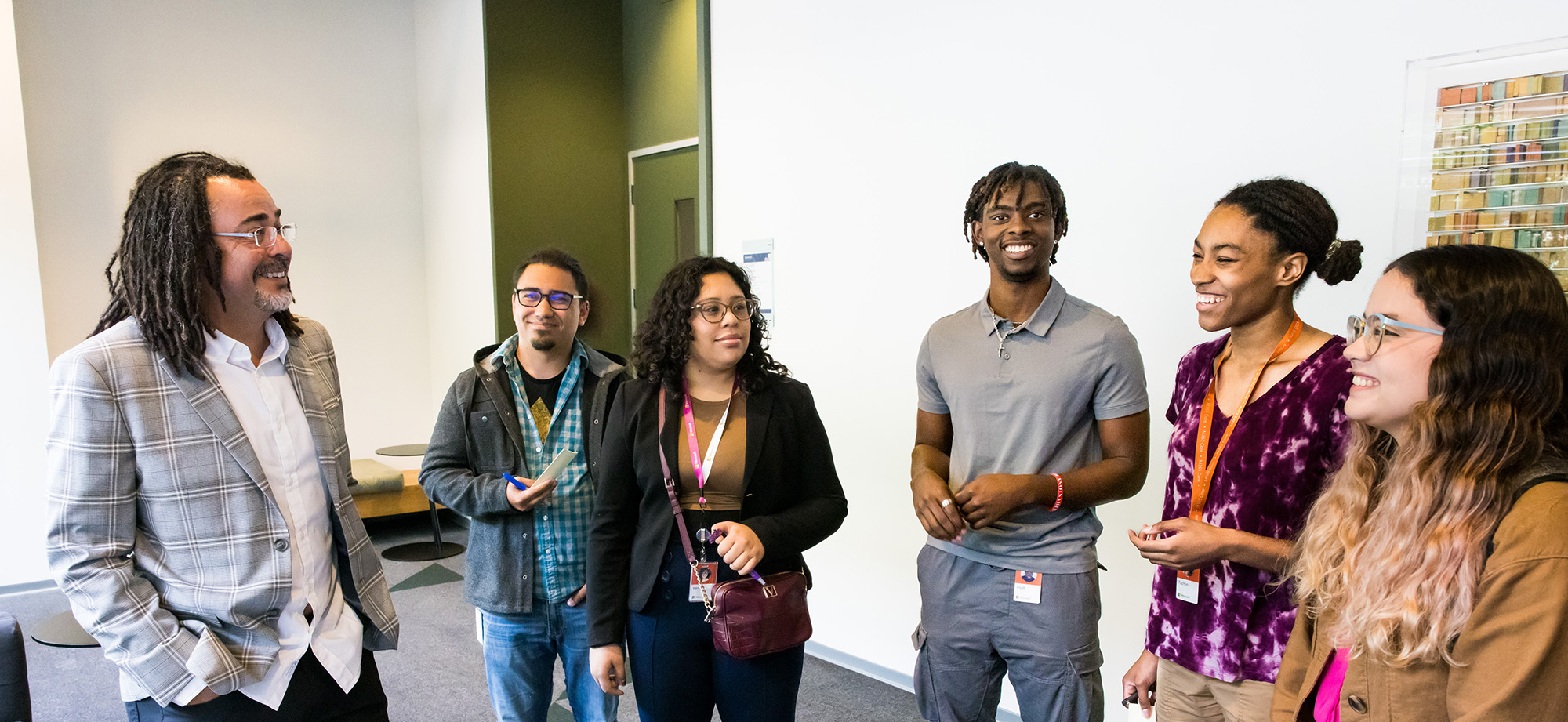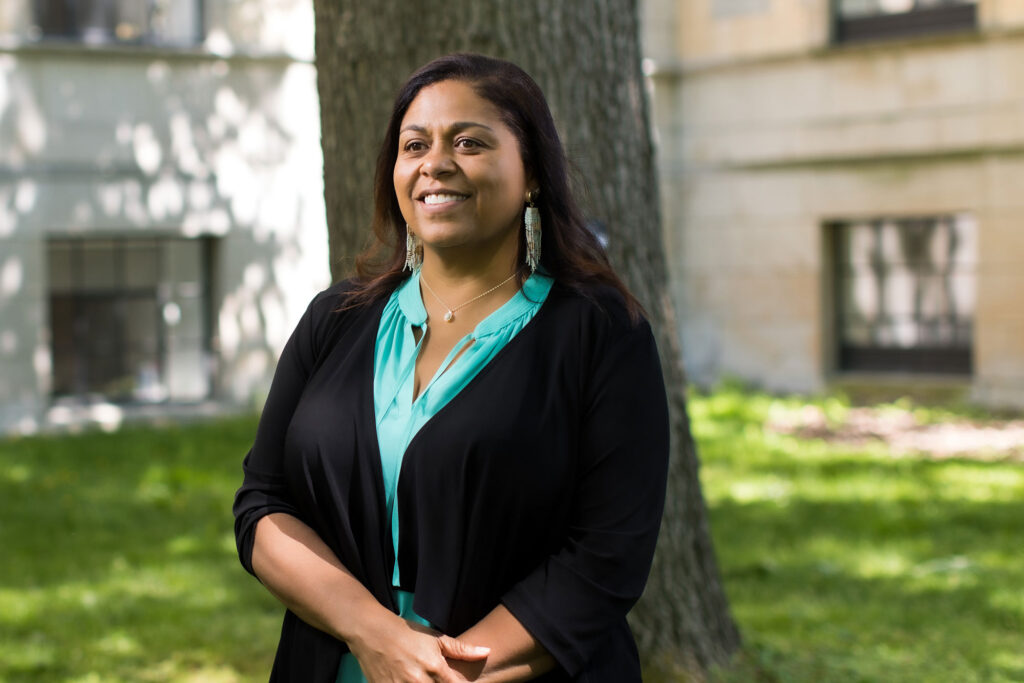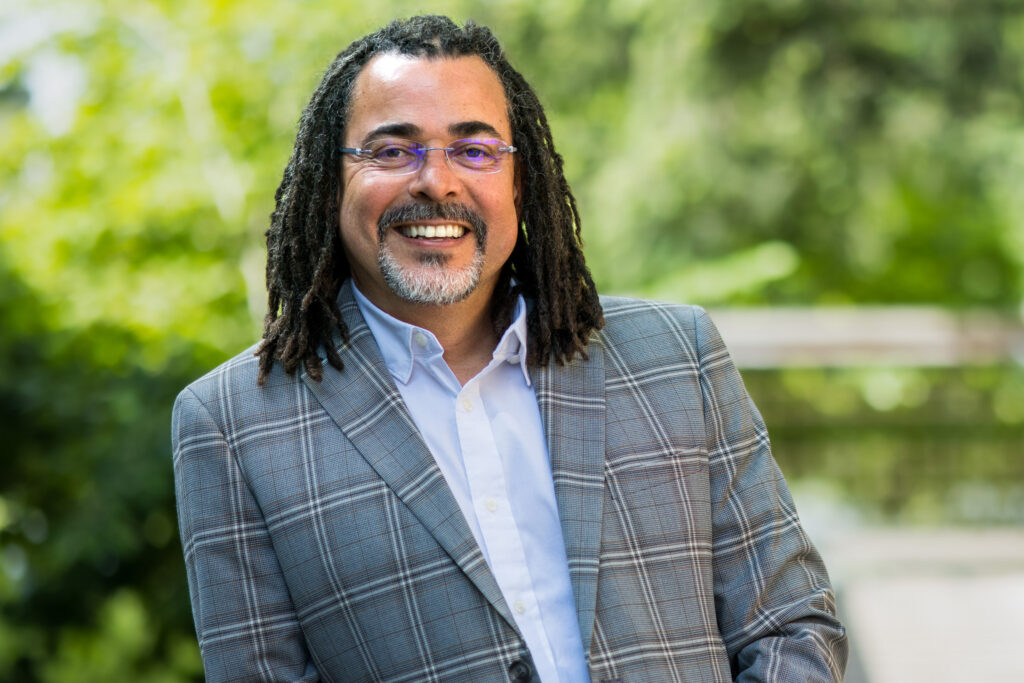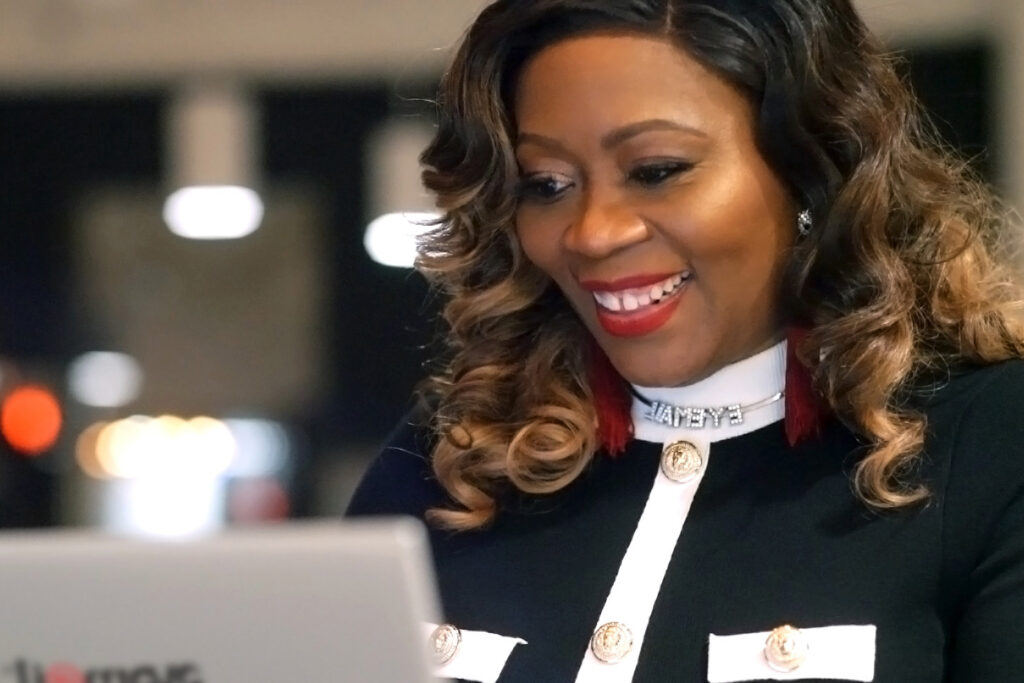
How Black-owned companies are using corporate connections to give back
Updated April 17, 2025, from Microsoft: In 2020, we committed to a five-year focus to address racial injustice in the United States and helping to improve the lived experiences of our employees and the communities in which we live and work. As the initiative reaches its planned conclusion, we will apply the lessons learned to our enterprise-wide business strategy to further fuel innovation. We will continue to focus on creating career opportunities, attracting and retaining top talent, strengthening our supplier and partner ecosystem and making an impact through local partnerships in education, justice systems, connectivity, AI skilling and business growth.
Angela Troy is a woman who believes in paying it forward.
With the voices of her father and early mentors in her ear, Troy has made the most of opportunities in her career. She worked for well-known companies before founding her own firm, Troy Consulting, which provides customers including Microsoft with professional services, management consulting and contract staffing. And now Troy, a Black woman, uses her increasingly vast network and understanding of how corporate giants function to help other diverse suppliers grow and to mentor business students at the University of Washington, advising them on class projects that help small, minority-owned businesses.
Those kinds of ripples from one person’s efforts are an example of the widespread impact a corporation can have when it commits to partnering with communities and using its balance sheet to create sustainable change. And that type of engagement was the aim at the core of the Racial Equity Initiative Microsoft implemented three years ago, when one of its pledges was to double the number of Black- and African American-owned suppliers it works with and spend $500 million more with those existing and new partners. Those goals — reached a year early — are now providing a solid foundation for deeper engagement even amid economic uncertainty.

“When someone is doing something like this for me, I want to do the same in my community,” Troy says.
Troy, whose firm has been a preferred supplier with Microsoft since 2006 and was named the company’s Diverse Supplier of the Year in 2022, says she’s seen the initiative’s effect through working with people at the technology company who are “so devoted and committed to helping diverse suppliers and getting us to the point where we can see continued growth.”
And having a strong business recognized for its capabilities and experience at Microsoft allows her to do more to help others, she says.
Troy has worked with Microsoft to provide insights to help other minority-owned suppliers “understand the challenges and the pathway to success at a large corporation,” she says. “Corporate culture is very complex, so it’s important that new suppliers understand the process so they’re ready to jump in and be successful.”
And she has volunteered with college students for years. Several years ago she hosted a dinner that introduced 60 low-income engineering students, many of whom were racial and ethnic minorities and the first in their families to attend college, to a dozen engineers with diverse backgrounds. “I want students to see and engage with successful Black, Hispanic and Native American engineers and business professionals, to understand that the path they’re on is worth it,” she says. And this was her third year coaching business majors, guiding a group of six students this year who developed a marketing strategy for a local Black- and woman-owned real-estate company.
“It’s fulfilling to contribute to both student professional coaching and business growth,” Troy says. “When students and other diverse suppliers understand that you’re a Microsoft supplier, that brings a level of respect, and it allows them to see that we have the caliber to work in this field, and we’re a strong consultancy. It’s immediate credibility, and we’ve earned it.”
As Microsoft increasingly sought to engage with a workforce with a broad range of perspectives, backgrounds and experiences, it found help nine years ago from Kobie Hatcher’s consulting firm, Cyborg Mobile, which he had founded in 2009 to supply corporations with technology consulting services.
Hatcher, a Black man who started his career as an educator before entering the tech sector, worked in product development for several Fortune 500 companies before founding Cyborg Mobile. He drew from that background to create the New Technologists Academy. The program, co-sponsored by Microsoft, reaches out to community organizations and to freshmen and sophomores at schools often overlooked in conventional recruitment efforts, such as community colleges, historically Black colleges and universities (HBCUs) and others that tend to attract Hispanic and Indigenous students.
“We aimed to transcend traditional notions of diversity by embracing a wide array of talents, problem-solving techniques and lived experiences,” Hatcher says. “Our goal was to tap into the vast well of untapped potential and infuse it into the product development process.”
Participants spend the summer at Microsoft’s headquarters in Redmond, Washington, and are taught the product development lifecycle and coached by Cyborg Mobile and Microsoft employees as they take a product idea from concept through prototype. The program seeks students from varied fields — “we’ve had good luck with philosophy and liberal arts majors,” Hatcher says — and from more rural areas of the U.S. where computer science careers aren’t common.
Since 2015, 98% of the 500 New Technologists participants so far have gone on to graduate from college — a rate nearly triple that of their peer group, Hatcher says — and many have gone on to work at tech companies around the country. Many also have become the first in their families to purchase their own homes, a major achievement for families historically disadvantaged by lending practices and financial policies.
“Because we are from these communities and have established careers in the tech sector ourselves, we can credibly say to aspiring technologists, ‘You have what it takes to thrive in the tech industry,’ and so we’re having a legit impact on the community at large,” Hatcher says. “It’s unique, it’s amazing, and it’s incredibly effective. And now we’ve proven after all these years that the constraint is not a shortage of talent but a shortage of opportunity.”
The New Technologists program served as a transformative milestone for Cyborg Mobile, Hatcher says, and helped the company earn additional technology and management consulting projects.


Lisa S. Jones’ tech and business development journey with Microsoft began 15 years ago, when she read a press release about a Microsoft sponsorship for women in technology. Jones began attending events and connecting with mentors. Before long, advocates at the company helped her with introductions and technical guidance as she focused on expanding her Atlanta-based marketing technology firm, EyeMail, whose patent-pending platform enables videos to play automatically in emails.
When Microsoft announced its Racial Equity Initiative in 2020 and set a goal to double the number of Black suppliers it does business with, a procurement engagement manager for the company remembered Jones and reached out, partnering with EyeMail to integrate video in email marketing communications as part of the Windows 11 launch in 2021. Jones’ company has gone on to do more projects for Microsoft and other large corporations.
“I started crying when I got my first contract with Microsoft, because I was full of gratitude,” Jones says. “Everyone told me, ‘You’re a woman, you’re a Black woman, you’re from Alabama, you don’t have the right network, you’re not a coder’ — I could go on and on. But I said, ‘I am going to make it.’
“So when I was awarded the Microsoft contract, and the supplier number, the whole process of onboarding was fabulous, and it was exhilarating,” she says. “We have a lot of Fortune 500 customers on our roster now, and there are so many tangible and intangible benefits to this relationship that continue to evolve and show up.”
Jones created her company after her mother’s unexpected death at a young age in 2004. Jones says she “wanted to do something different, something impactful” in her mother’s honor, and she chose the field of communications because of its influence in peoples’ lives. Now she focuses on inclusivity in her company and accessibility in her product — including closed captioning for people who are deaf or hard of hearing, for example — and she and her staff mentor high school and college students and donate their time and services to global charities and programs that empower women in technology.
Simply having a liaison at a big company can be a crucial step for a small supplier to figure out how to engage with massive corporations, Jones says. She and Troy both say they’ve noticed a difference in Microsoft’s efforts in the three years since the Racial Equity Initiative began, including a concerted plan to introduce Black business owners to procurement leaders in every division, as well as events to connect small business owners to share tips on how to navigate being a vendor for such a large company. There’s also a new effort to pair smaller, Black-owned suppliers with larger, more established ones for the bigger projects.
“Microsoft is driving the engagement between suppliers and implementing different methods to help diverse suppliers continue to grow,” Troy says. “And then everyone benefits from that workforce diversity and from bringing people in from all ranges of experiences.”
Lead image: Kobie Hatcher, founder of Cyborg Mobile in Renton, Washington, and some of the students in the New Technologists Academy he created (Photo by Dan DeLong)

